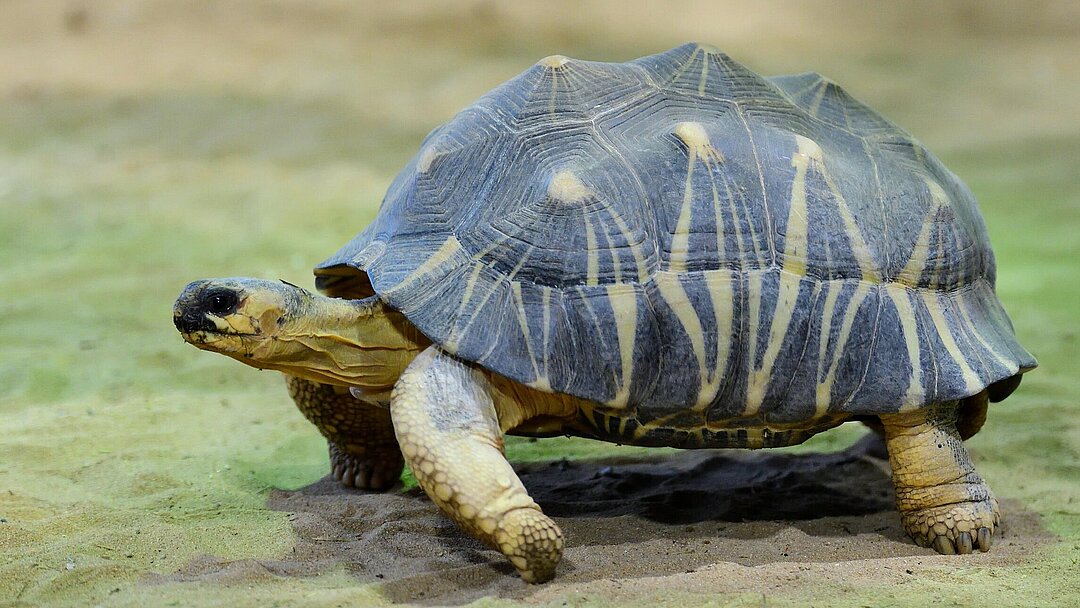
In a new study published in the journal Science, scientists analysed data from zoos and aquariums on 52 species of tortoises and turtles. The data used was obtained from a database called the Species360 Zoological Information Management System (ZIMS), which Hellabrunn Zoo and many other zoos around the world use to document their animal populations. The analysis found that turtles and tortoises defy common evolutionary theories of other animal species and can reduce their rate of aging in response to improvements in environmental conditions.
Evolutionary theories of aging predict that all living organisms weaken and deteriorate with age - a process known as senescence - and eventually die. Scientists from the Species360 Conservation Science Alliance and the University of Southern Denmark have now been able to use data from Hellabrunn Zoo and other zoos to show that certain turtle and tortoise species may exhibit slower or only negligible senescence when their living conditions improve.
Of the 52 turtle and tortoise species studied, 75% showed extremely slow senescence, while 80% have slower senescence than modern humans. This does not mean that they are immortal. The risk of death remains but does not increase with age. Turtles and tortoises will eventually die from unavoidable causes such as disease.
According to Prof Dalia Conde, co-author of the study and Species360 Director of Science and Head of the Species360 Conservation Science Alliance, species can reduce their rate of aging in response to the improved living conditions found in zoos and aquariums, compared to the wild. In addition, she explained that modern zoos play an important role in conservation, education and research. The study clearly demonstrates the immense value of the scientific records kept by zoos and aquariums of their animal populations.
Rasem Baban, zoological director of Hellabrunn Zoo, is the chairman of the supervisory board of the non-profit organisation Species360 and explains: “As a scientifically-led zoo, Hellabrunn uses the ZIMS database to keep detailed records of its own animal population. As a keeper of tortoises such as Aldabra giant tortoises, Madagascar radiated tortoises and Egyptian tortoises, Hellabrunn Zoo actively collected data and shared it through the ZIMS. In this way, it contributed directly to this study.”
About Species360: Species360 is a non-profit organisation that supports a global alliance of 240 research partners in collecting, sharing and analysing data about wildlife and conservation. It works to harness the value of the data found in the ZIMS, which is used by over 1,200 zoos, aquariums, universities and government organisations in 101 countries around the world. The data collected on more than 22,000 species in the ZIMS is an important tool for the development of guidelines for husbandry, animal welfare, population management, veterinary care and species conservation. In addition, this data is used to gain scientific knowledge and to make future decisions on animal and nature conservation.